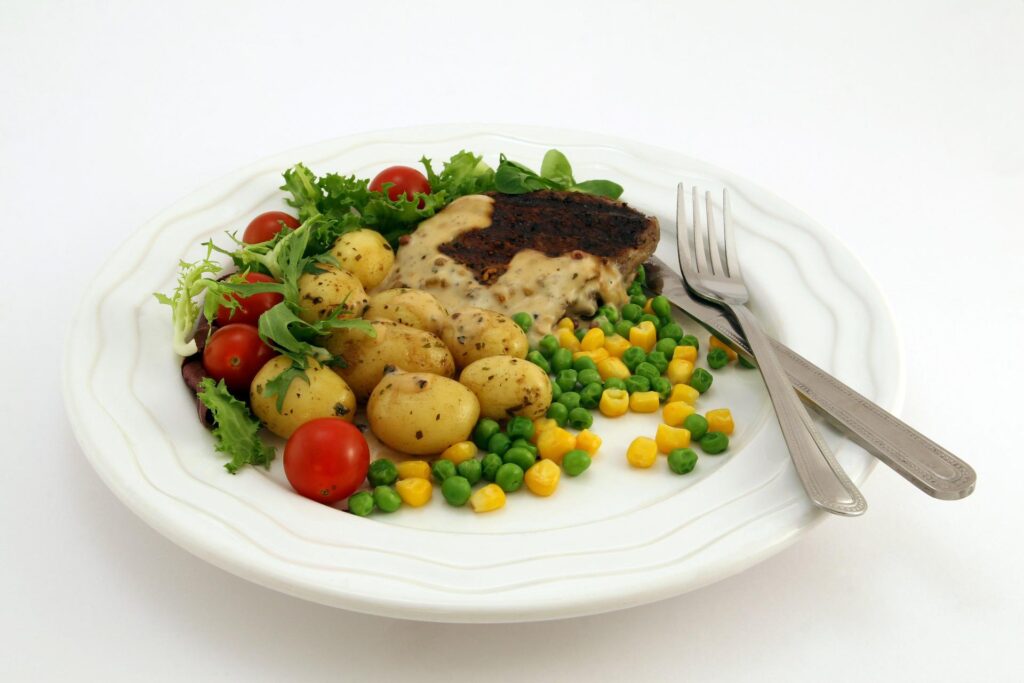This article explains the Pescetarian diet plan, the benefits of a Pescetarian diet, and much more.
Pescetarians are vegetarians who eat fish and seafood as their main source of protein.
This is a growing dietary trend that combines the benefits of vegetarianism and the flexibility of a plant-based diet. Let’s explore the basics, benefits, and sample diet plans for pescetarians.
Understanding Pescetarianism
The word “pesce” (fish) is derived from the Latin phrase “pesce,” meaning “fish.” Pescetarians avoid red meat and poultry but still consume fish and seafood.
They also consume dairy products, such as milk and eggs, as well as fruits and vegetables. Pescetarians also eat legumes and nuts, as well as whole grains.
Pescetarians eat fish and seafood for a balanced diet, which includes omega-3s, proteins, vitamin D, and minerals.
Benefits of a Pescetarian Diet
- Heart Health: Omega-3 fatty acids in fish reduce the risk of heart disease and support cardiovascular health.
- Nutrient Diversity: Including plant-based foods and fish offers a wide array of vitamins, minerals, and antioxidants.
- Weight Management: Emphasizing nutrient-dense foods aids in weight control and boosts overall well-being.
Sample Pescetarian Diet Plan
Breakfast:
Smoked Salmon Bagel: Whole-grain bagel topped with smoked salmon, cream cheese, red onion, and capers.
Fruit Salad: Assorted fruits like berries, mango, and kiwi for a refreshing start.
Lunch:
Mediterranean Tuna Salad: Tuna mixed with olives, cherry tomatoes, cucumber, and feta cheese over mixed greens.
Vegetarian Sushi Rolls: Sushi rolls filled with avocado, cucumber, and tofu, served with soy sauce and pickled ginger.
Snacks:
Greek Yogurt Parfait: Greek yogurt layered with granola, nuts, and honey.
Edamame: Steamed edamame sprinkled with sea salt for a protein-packed snack.
Dinner:
Grilled Lemon-Herb Halibut: Halibut fillets marinated in lemon, garlic, and herbs, grilled and served with quinoa and roasted vegetables.
Stir-Fried Tofu and Vegetables: Tofu stir-fried with mixed vegetables in a savory sauce, served over brown rice.
A Word From GetMe Treated
Pescetarianism combines the benefits of a plant-based diet with the benefits of a fish- and seafood-based diet.
This approach provides a variety of nutrients, promotes heart health, supports weight management, and allows for a wide range of delicious and nutritious foods.
It is important to always consult with a healthcare provider or a registered dietitian before making substantial dietary changes to ensure that it meets your individual needs and goals.
Pescetarianism diet plan FAQs
What is a pescetarian diet?
A pescetarian diet is a plant-based eating approach that includes fish and seafood while excluding meat and poultry. It emphasizes fruits, vegetables, legumes, nuts, seeds, whole grains, dairy, and eggs.
What foods are included in a pescetarian diet?
A pescetarian diet comprises fish, shellfish, fruits, vegetables, legumes, nuts, seeds, whole grains, dairy products, and eggs.
What health benefits does a pescetarian diet offer?
A pescetarian diet provides essential nutrients like omega-3 fatty acids, protein, vitamins, and minerals from fish and plant-based foods. It supports heart health, aids in weight management, and offers a diverse nutrient profile.
How does a pescetarian diet differ from other diets like vegetarianism or veganism?
Pescetarianism is similar to vegetarianism but includes fish and seafood. Unlike veganism, which excludes all animal products, pescetarianism allows fish, eggs, and dairy.
Can I get enough protein on a pescetarian diet without meat?
Yes, fish, seafood, eggs, dairy, legumes, nuts, and seeds are excellent protein sources in a pescetarian diet, providing ample protein for most individuals.
Is it possible to follow a pescetarian diet on a budget?
Yes, a pescetarian diet can be budget-friendly by opting for affordable fish varieties, buying seasonal fruits and vegetables, and purchasing pantry staples like beans and whole grains.
Are there any potential drawbacks or concerns with a pescetarian diet?
Some concerns include mercury levels in certain fish species and ensuring adequate intake of nutrients like iron and vitamin B12, which can be obtained through fortified foods or supplements if needed.
Other Helpful Blog Posts:
- Calorie-Free Foods That Fill You Up
- Just Food For Dogs Fish And Sweet Potato Recipes
- Balanced Diet Food Time Table For Family
- The Best Food For Baby Rabbits: A Complete Guide
- What Type Of Food To Feed Kittens
- Food Dog Eat: A Comprehensive Guide
- 12 Food Combinations That Are Bad For Your Health

